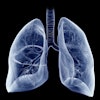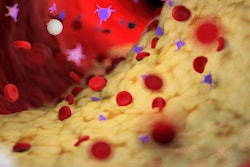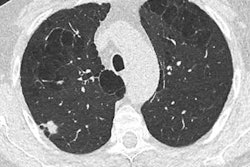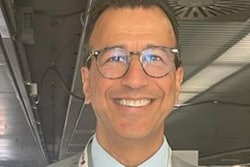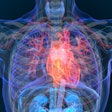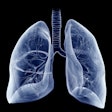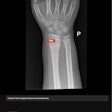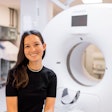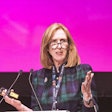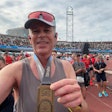Dr. Marc Zins is the president of France's national radiology congress (Journées Francophones de Radiologie, JFR 2023), which begins in Paris on 13 October. A gastrointestinal radiologist who specializes in AI, oncologic disease, and acute abdominal conditions, Zins is head of imaging at Saint Joseph and Marie-Lannelongue hospitals in Paris.
Besides dedicating a large part of his work to teaching and research, he is also the hospital's elected medical director representing all specialties, a role which necessitates twice weekly meetings with the hospital's management team.
But how did he get to be where he is today, and how is the specialty evolving? We present a personal profile of the person presiding over this year's congress, looking at his views and outlook and his hopes for imaging in his own department and beyond.
An eye on AI
As head of radiology at Saint Joseph hospital, Zins, has spearheaded projects into useful AI tools as well as collaborating with startups in structured reporting, both of which will help the department develop its retrospective research.
"We have been using AI in daily practice for the past two years for detecting bone fractures, as well as in mammograms for breast cancer detection. We also have a locally developed tool for the automatic measurement of aortic aneurysm signs deployed at the hospital's second site, Marie-Lannelongue hospital, which specialises in cardiothoracic diseases," he noted.
He points to other developments such as the planned installation of a photon-counting machine in 2025, which will optimize image quality through improving spatial resolution and radiation dose for cardiovascular and oncologic diseases.
Teaching to the fore
In terms of management style Zins is a great believer in one-to-one discussion and mentoring as well as large collaborative exchange with the entire medical team. He pays particular attention to the technicians as there is a shortage of these professionals across Europe.
Zins sees himself as an educator and this is largely due to meeting pediatric radiologist Dr. Laurent Garel at Necker Hospital in Paris when Zins was a medical student.
"I listened to his teaching sessions, and he was very easy to understand. I realised how important it was to pass on knowledge to younger generations. That is why I am still a radiologist in a big hospital – to meet young residents and to transmit my knowledge," he noted. "This means that I try to keep what I say clear and concise in daily practice and have weekly meetings with residents where we have open discussion about radiology challenges. This is my favourite part of the week."
Experience and exchange have taught him which qualities are essential for being a good teacher. The most important is empathy -- with everyone including students, patients, and staff.
Turning points
But why did Zins choose medicine in the first place? His mother hoped that at least one of her three sons would become a doctor and was delighted that this was also his wish, he noted. Sadly, she died of pancreatic cancer when Zins was a 19-year-old medical student.
"It's no surprise to me that this disease is now the area where I have greatest expertise," he told AuntMinnieEurope.com.
During his time with Garel in the early 1980s, Zins saw how radiology was pivotal for solving cases and treating patients and this convinced him to specialize in imaging.
"There were innovative tools that were coming into practice, making radiology central to patient care. That said, it was less the novel technology and more the intellectual reasoning that attracted me. Most treatment decisions were completely modified or linked to imaging performance," he said.
There have been other key figures over the years that have influenced his professional life. When Zins was a fellow at Beaujon hospital, department chair Prof. Henri Nahum showed him how to properly manage a team of excellent radiologists. Prof. Yves Menu and Prof. Valerie Vilgrain, also from Beaujon Hospital, have likewise proved to be valuable colleagues, he noted.
Need to lead
After a spell at the Montsouris Hospital where Zins felt his role as a teacher was limited by organizational issues, notably a lack of residents, he moved to Saint Joseph hospital in 2002 and became chair of radiology in 2003.
As chair he could organize the teaching, and this aligned with how he wanted to work as a doctor.
"Being chair wasn't the goal, but the means to achieve departmental policy change, with a new focus on knowledge transmission and subspecialization. While it was a nice place to work with good staff, the radiology department at Montsouris had been too general and I knew subspecialization was the way to go," he said.
JFR agenda
Zins thinks JFR 2023 promises many exciting and pertinent presentations, among them a session on how to organize the correct work-life balance presented by Prof. Laurent Fournier from the Georges Pompidou Hospital on Sunday morning.
"Young colleagues want a balance between their professional and personal life, and we need to help them attain this. When I was a young radiology fellow 30 years ago, I didn't manage this balance. I didn't see my children growing up," he said.
That said, although he worked hard, Zins enjoyed everything he did and still does – he didn't suffer from burnout despite, by his own admission, working "too much."
"You must like your job, whether teaching, researching, or treating patients," he noted. "Take the most pleasure possible from what you are doing, be happy, and then you will be successful before you start."
The main topic at JFR this year will be integrated diagnoses. JFR will envisage a future of improved patient care through predictive, personalized medicine and optimized multidiscipline meetings. All subspecialties have a session dedicated to integrated diagnosis, he noted.
Takeover risks
Other "must-see" sessions will cover globalization and investment funds, according to Zins. Increasingly imaging is being integrated into private practice companies, and this is perceived by some as a threat. Two sessions organized in the afternoons of Saturday and Sunday will be dedicated to the increase of private equity buying imaging departments in private practice landscapes and how this issue is leading to intergenerational disputes: Younger radiologists want to keep leadership in their profession but the older ones want to sell their shares before they retire, noted Zins.
"A large number of radiologists work in private practices that used to belong to radiologists but now belong to investment funds. The main question is who is in charge of medical governance in these practices? Who decides how we work? Who is the boss?" he noted. "This question of medical governance is a common issue, but it is particularly worrisome in radiology because over the last five years substantial amounts of money have changed hands and this can go to our heads."
Outside of radiology
And when he isn't working...?
Zins goes hiking in the wilderness and the mountains for a total disconnection from city life and reconnection with nature.
"I just forget about everything and cleanse my mind. I go to the Alps every summer and I have been to the Grand Canyon in the U.S. I have been hiking for the past 40 years and each time I come back refreshed, re-energised, and feel better for the exercise," he said.


